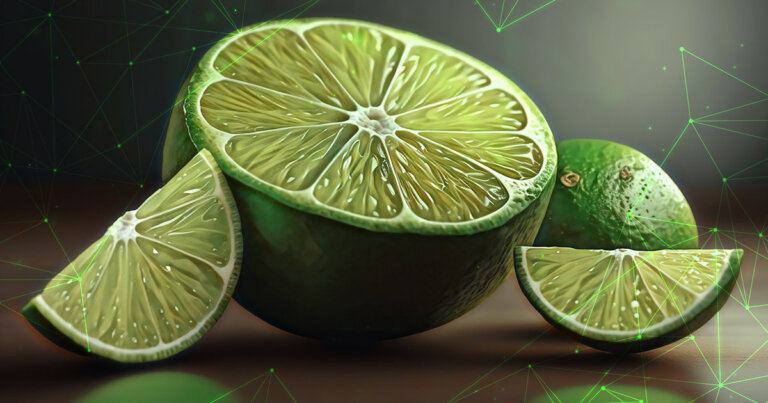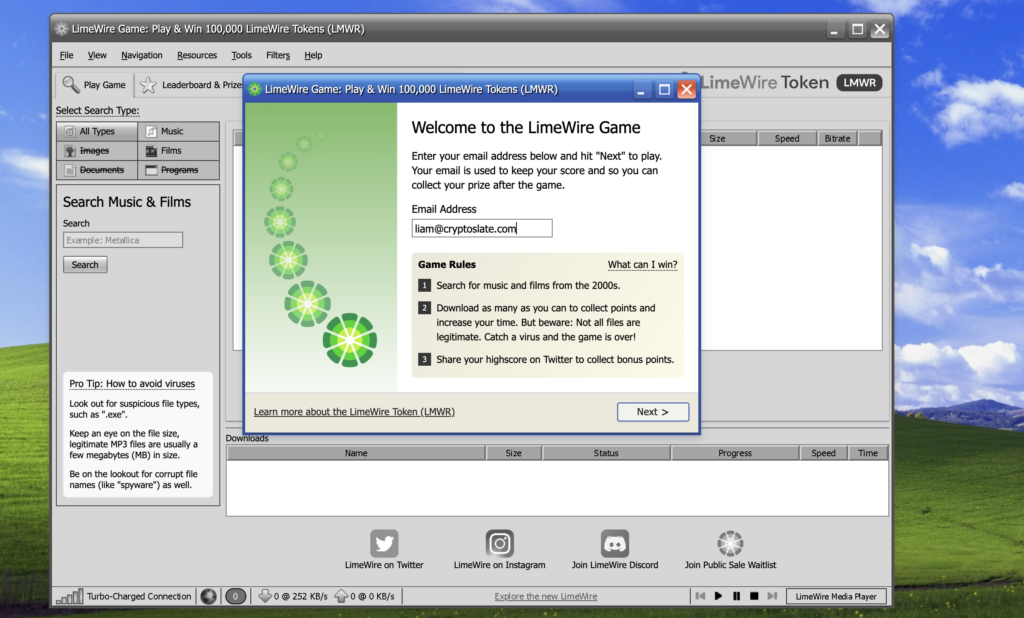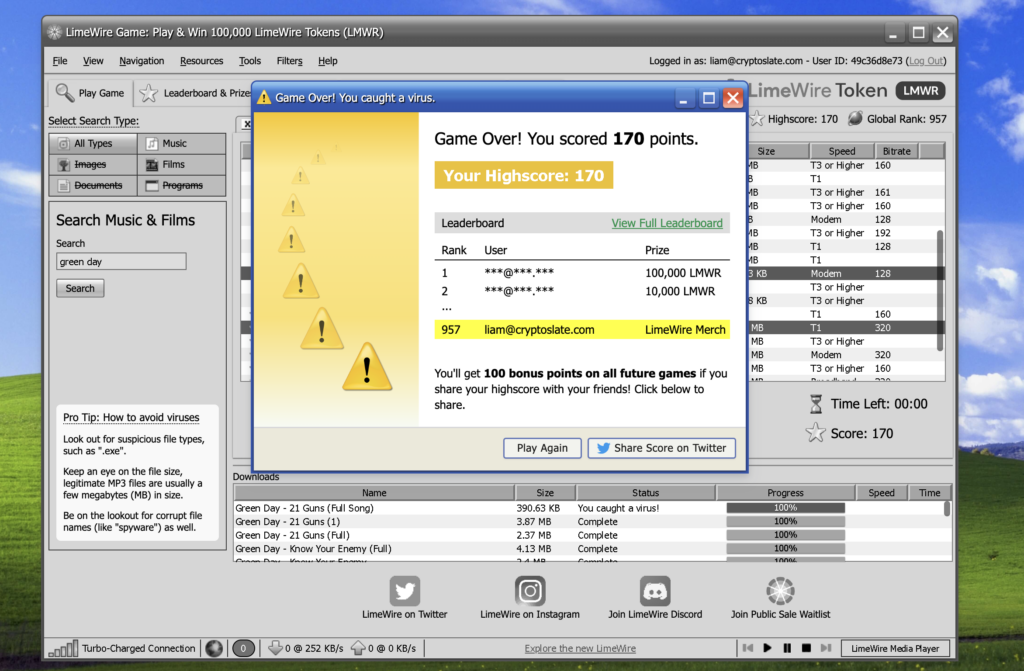 Search music, film on LimeWire like the early 2000s for LMWR tokens
Search music, film on LimeWire like the early 2000s for LMWR tokens Search music, film on LimeWire like the early 2000s for LMWR tokens
New promo for LimeWire public sale lets users teleport back to the mid 2000s in experiential game.

Cover art/illustration via CryptoSlate. Image includes combined content which may include AI-generated content.
The NFT marketplace, and infamous internet name, LimeWire, has entered the web3 gaming space to promote the upcoming public sale of its LMWR token.
The experiential browser game transports users back to the early 2000s when LimeWire was a completely different beast.
LimeWire’s only tie to the original version is the domain name, with the project having a wholly separate leadership team. However, the new operators certainly know how to push on those nostalgic buttons of Millenials worldwide. The new game guides users through a memory hall of fame for early 2000s teenagers exploring the joys of peer-to-peer (P2P) networks for the first time.

The game brings back a similar user interface to the original LimeWire application, with the game set on a Windows 95 desktop. The competition aims to download as many files as possible without downloading a virus.
Players can search for bands of the period and download songs until the program indicates a virus has been found and the game is over. My first effort ended with just 170 points for my “Green Day” search.

While the game is obviously marketing material for the public sale, that’s not to say that adverts can’t be fun once in a while. The designer of this ‘user activation’ clearly gets the target audience as there are clear ties from software like LimeWire to the current-day crypto industry.
For many, Bitcoin was far from the first P2P experience for most of us as we spent countless evenings torrenting a single album. We remember the joys of finding the back catalog of bands whose CDs weren’t sold near you, random bootleg live recordings, and the pain of files stuck on 97.9% because of leechers.
At the University of York, we even had local networks on LimeWire to torrent files on the university intranet. Obviously, I never partook in any of these activities, which we later learned were illegal.
Yet, the P2P boom was short-lived as Lime Wire LLC was ordered to stop all file-sharing activities by a US federal court in October 2010, following a lawsuit by Arista Records LLC. Bitcoin had, however, been created the year before, in 2009, and became the next grassroots network for those within the internet’s grey areas.
Seeing the name LimeWire back on the internet now that P2P networks are back in vogue is great to see. While the original creator, Mark Gorton’s, absence from the project is sad, the new game certainly brings about memories and reminds us how long we’ve been bullish on decentralization.
Disclaimer: LimeWire is an advertising partner of CryptoSlate, but this is not a sponsored post; our editorial team chose to cover this news organically.







































































































